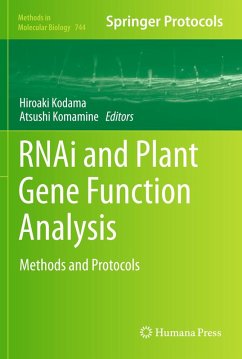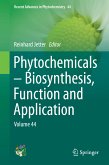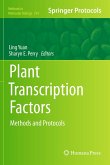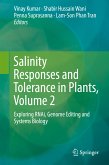In addition to the functional annotation of unknown genes, RNAi technology has been applied to the genetic engineering of important plant metabolites including starches, oils, and storage proteins. RNAi has been used to engineer plants resistant to plant viruses and also to nematodes and insects. RNAi and Plant Gene Function Analysis: Methods and Protocols will provide both professionals and novices of plant biotechnology and breeding research with essential tips for designing experiments meant to explore plant gene function.
Dieser Download kann aus rechtlichen Gründen nur mit Rechnungsadresse in A, B, BG, CY, CZ, D, DK, EW, E, FIN, F, GR, HR, H, IRL, I, LT, L, LR, M, NL, PL, P, R, S, SLO, SK ausgeliefert werden.









